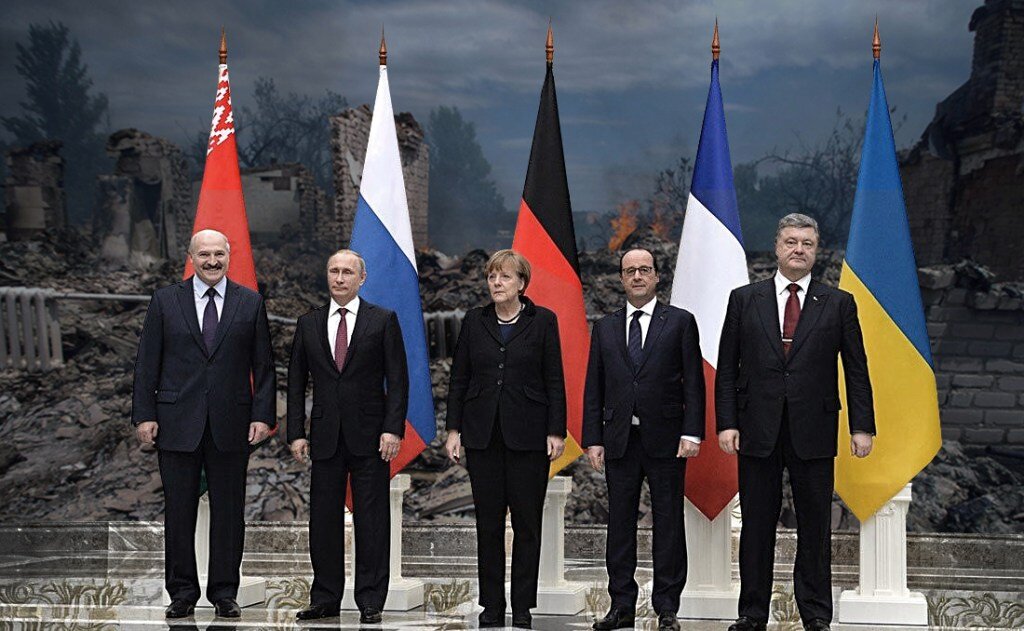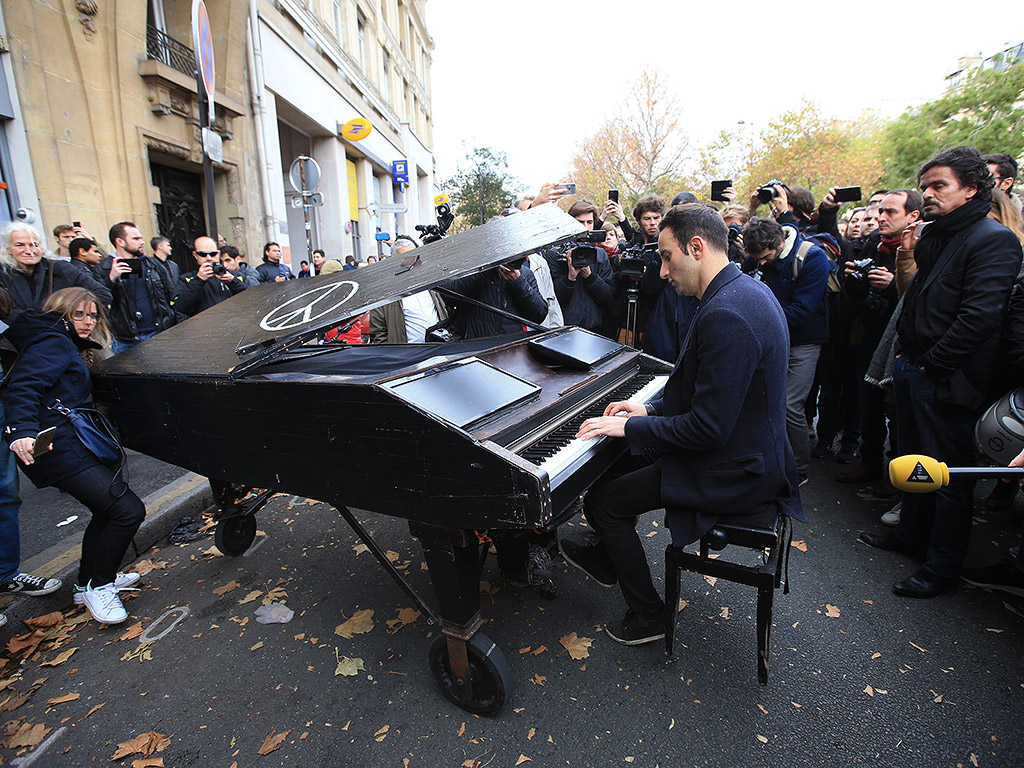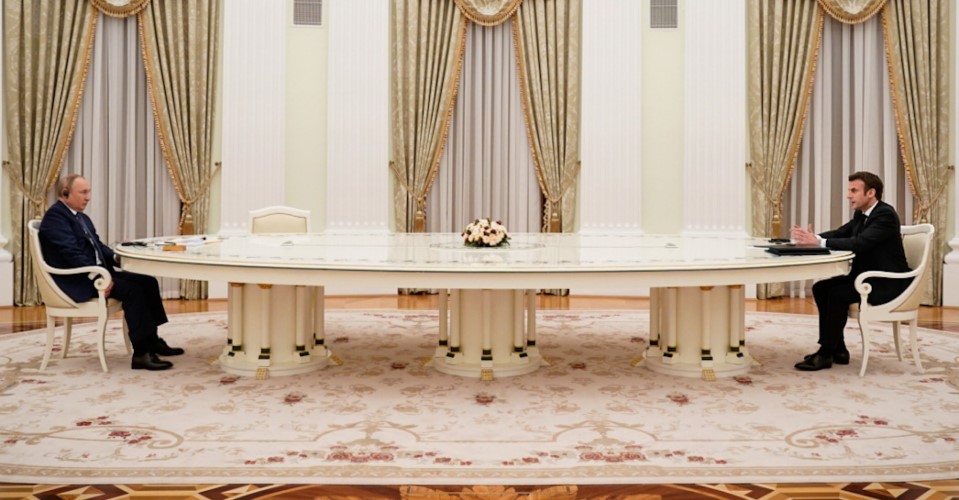However, it failed to stop the fighting in the Donbas.
As fighting raged on near Debaltseve, another round of negotiations under Chancellor Angela Merkel of Germany and President François Hollande of France took place in Minsk. These produced a set of measures known as Minsk-2.
However, neither the first nor the second Minsk Protocol, signed on February 12, 2015, ensured peace and the restoration of Ukraine’s territorial sovereignty and integrity.
On the contrary, the constant mention of the Minsk Agreements and their “no alternative” has become a mantra for Western politicians and diplomats, and, of course, for the representatives of the Russian Federation, who have repeatedly tried to persuade Ukraine to implement these documents in a manner that is beneficial to the Russian Federation.
Is Ukraine obliged to comply with the Minsk Accords? Is there really no “alternative” to Minsk? Is it possible for Ukraine to abandon Minsk? One of the most titled international lawyers in Ukraine, Judge of the International Criminal Tribunal for the former Yugoslavia, Ambassador Volodymyr Vasylenko, answers these and other questions.
Taking a closer look at Minsk
When Russia invaded Crimea and the Donbas in 2014, world democracies and authoritative international institutions declared solidarity with Ukraine, expressed unwavering support for its sovereignty and territorial integrity. However, since the beginning of the Russo-Ukrainian war, both the Ukrainian government and Ukraine’s partners and allies, for some reason or other, continue negotiating with the aggressor on his terms.
Everything you wanted to know about the Minsk peace deal, but were afraid to ask
The West keeps referring to the Minsk Agreements as a “non-alternative basis for settlement” and continues to accept the Kremlin’s position. But, such strict adherence to Minsk makes it virtually impossible to restore Ukraine’s sovereignty and territorial integrity. Why?
- First, these agreements do not contain provisions for the return of Crimea to Ukraine.
- Secondly, Minsk envisages not restoring but limiting Ukraine’s sovereignty by amending the Constitution, i.e. attributing a special status to certain areas of Donetsk and Luhansk Oblasts, establishing a special regime for the Russian language, holding elections before restoring real Ukrainian control, creating local law enforcement agencies, which will probably be based on the structures of the Russian occupation administration, and finally, giving amnesty to all persons involved in war crimes and crimes against humanity.
This objective was openly acknowledged by Vladislav Surkov, a former aide to Putin, who was once responsible for relations with Ukraine, when he stated in an interview with WarGonzo in July 2021:
“Giving the Donbas an appropriate status under the Minsk Agreements means that the laws of Ukraine do not apply in Donbas. This is the most important point in these agreements... The most Ukraine can claim is... what can be called symbolic sovereignty over the Donbas.”
Russia openly supports this position and goes even further by inventing and promoting a false thesis about the “legitimacy” of the Minsk Agreements.
But, contrary to modern international law, Russia interprets them as an ordinary, legally valid agreement and, says Russia, the only way to resolve the “internal Ukrainian armed conflict”. Russian diplomacy, special services, and propaganda machine spare no effort to spread the thesis that the Minsk Agreements are “inevitable” and “unavoidable”. Consequently, after massive and purposeful manipulative techniques used by the Kremlin, Minsk has replaced the current norms of international law in public consciousness and in the minds of many Western politicians.
Sadly, the leaders of certain Western states, many politicians and MPS have taken to repeating this false thesis about the “non-alternative nature of the Minsk Agreements”.
Fortunately, in official negotiations, Ukraine interprets and proposes to apply the Minsk Agreements in accordance with the requirements of modern international law, and not according to the whims of the aggressor state. At the same time, Russia rejects Ukraine’s proposals aimed at finding legitimate compromise solutions, and instead, seeks to apply the Minsk Agreements and nothing else, which a priori makes it impossible to achieve a fair settlement.
Minsk is not a legitimate document
The Minsk Agreements contradict the requirements of law and justice.
By their nature, content and form, these Agreements are not legally binding, and therefore are not subject to mandatory and unconditional implementation.
The signatories on behalf of Ukraine and Russia (former president of Ukraine Leonid Kuchma and Russian Ambassador to Ukraine Mikhail Zurabov) did not have official powers in compliance with the requirements of the national legislation of the respective parties and Articles 2 and 7 of the Vienna Convention on the Law of Treaties.
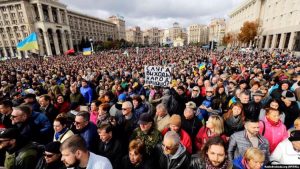
Therefore, the following points should be duly noted:
- The documents of the Minsk Agreements have not been submitted to the Verkhovna Rada, have not been ratified and are not legally binding on Ukraine.
- In addition, they have not been ratified by the State Duma of the Russian Federation. Neither Ukraine nor Russia have registered them with the UN Secretariat.
- In compliance with Art. 52 of the aforementioned Vienna Convention, the Minsk Agreements are null and void from the moment of their signing as they were imposed on Ukraine by force (“A treaty is void if its conclusion has been procured by the threat or use of force in violation of the principles of international law embodied in the Charter of the United Nations”).
- Contrary to Russia’s claims, the mention of the Minsk Accords in the UN Security Council resolution does not make them legitimate (Resolution 2202 of March 17, 2015 states that the Security Council “supports” the package of measures to implement the Minsk agreements and “calls” on all parties to ensure their full implementation).
In the UN, it is customary that only Security Council resolutions, where the last paragraph of the preamble refers to Chapter VII of the UN Charter, are legally binding on all UN members. There is no such reference in Resolution 2202.
In addition, the Security Council is not empowered to give legitimacy to any illegal acts, especially those that are legally invalid, such as the Minsk Agreements.

Russia’s actions
Ignoring the requirements of international law and using the so-called “legitimacy of the Minsk Agreements” as an argument, Russia acts as if the international legal order based on the UN Charter does not exist. In fact, the international legal order defined by the UN Charter exists, but it has been grossly violated by Russia’s act of armed aggression in eastern Ukraine.
The Minsk Agreements were forced upon Ukraine, which is prohibited by the UN Charter and entails international legal responsibility. It is both paradoxical and unacceptable that Russia, as the state responsible for the aggression, is attempting to impose restrictions that actually apply to the aggressor state on another country, Ukraine.
Further attempts by Russia to use the Minsk Agreements to resolve the Russo-Ukrainian war have been largely unsuccessful. This is evidenced by the many years of negotiations in the Normandy and Minsk formats.
In fact, the Minsk Agreements were stillborn from the beginning.
The reason for this lies not in the different positions on the implementation of the Minsk provisions, but also in the fact that a certain part of these provisions is illegitimate in its content, contrary to generally accepted principles of international law, the Constitution of Ukraine and Ukraine’s national interests.
The Kremlin is trying to justify the Minsk Agreements, its demands for a “special status” for Donetsk and Luhansk Oblasts, and its armed attack on Ukraine, by the fact that Ukraine allegedly violated the rights of the Russian-speaking population.
However, these allegations are far-fetched and totally false. The international monitoring institutions of the UN and the Council of Europe, which have studied human rights in Ukraine before, during and after Russia’s occupation of Crimea and ORDLO, have not confirmed any violations of the rights of Russian-speaking citizens in any region of Ukraine. Not a single lawsuit on the rights of the Russian-speaking population of Ukraine has been filed in the European Court of Human Rights.
In other words, the main demands formulated in the Minsk Agreements have neither legal nor factual grounds. In this regard, it should be noted that Ukraine’s refusal to enter into illegal settlement conditions does not in any way violate Russia’s sovereignty, its legitimate rights, or its legitimate national interests.
Therefore, it is logical to predict that the Verkhovna Rada of Ukraine will never ratify any international treaty that has been drafted on the basis of the Minsk Agreements and that would contradict the requirements of the Constitution and the Law “On International Treaties of Ukraine”. Moreover, Ukrainian civic society categorically rejects the capitulating conditions imposed by the Minsk Protocol. .
Forcing “peace” on Ukraine on Russia’s terms will lead to the defeat of the West
Russia has systematically violated key provisions of the Minsk Agreements. Despite the fact that Ukraine has made some concessions to Russia, the Kremlin leadership continues to wage war, trying to force Ukraine to meet its demands.
Despite the legal shortcomings of the Minsk Agreements as a whole, Ukraine is ready to comply with some individual provisions, which do not contradict international law, the Constitution and national interests. However, Ukraine is not obliged to abide by the provisions that undermine the foundations of its statehood and its territorial integrity, and are incompatible with the principles of the UN Charter.
In addition, any other state, international organization or group of states, which exert pressure on Ukraine in order to force it to accept Russia’s demands, are complicit in the Kremlin’s armed aggression against Ukraine.
- and not the rule of law - prevailed in international relations. Such concessions to Russia will encourage its leadership to further violate international law.
In this case, Minsk will become a new Munich.
A dangerous precedent will be allowed, namely violation of the rule of international law, while rewarding the aggressor state and punishing the aggressed state. All this will lead to a fatal geopolitical defeat of the West, which will have dangerous far-reaching consequences for both Ukraine and Western democracies.
By resisting Russian aggression on its eastern borders, Ukraine is defending the civilizational values of the West and its vital interests.
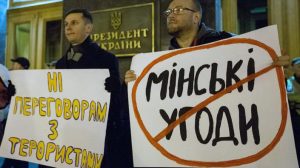
The Minsk conundrum. Is there a solution?
Therefore, a Russo-Ukrainian-Russian settlement should be based on accepted norms of international law, in particular those enshrined in the UN Charter and the Vienna Convention. Only in this case will the statements of Western democracies in support of Ukraine’s sovereignty and territorial integrity be meaningful and have a chance for practical implementation.
What would happen if Ukraine implements the controversial Steinmeier formula for Donbas?
Article 51 of the UN Charter unconditionally recognizes “the inherent right of individual or collective self-defence if an armed attack occurs against a Member of the United Nations…” This implies that all UN member states, which have assisted Ukraine and/or applied international sanctions as a form of collective self-defence, have the right to participate in a Russo-Ukrainian settlement on the side of Ukraine as a state that has been subjected to Russian armed aggression.
Today, settlement talks are taking place in Minsk and Normandy formats. However, trying to find a solution to the same issue in two separate formats is anomalous and counterproductive.
In addition, the Kremlin uses the Minsk format to manipulate facts, falsely claiming that the Russian side is a mediator and almost a peacemaker, and that ORDLO representatives should be directly included in these negotiations.
To achieve a positive result in an eventual Russo-Ukrainian settlement, it is essential to introduce one format of bilateral negotiations between Ukraine and Russia with the participation of third parties.
Such negotiations must be conducted in compliance with generally accepted norms of international law. As defined by the norms of international legal responsibility, a state is responsible for the violation of another state’s territory; it must restore law and order and ensure compensation for ensued damage. In light of the above and the consequences of Russia’s armed aggression, the priority stages of the Russo-Ukrainian settlement should include as follows:
- first, immediate and unconditional cessation of fire, shelling and hostilities;
- second, rapid exchange of prisoners of war;
- third, complete and unconditional withdrawal of all Armed Forces of the Russian Federation, both regular and irregular, from the occupied territories of Ukraine, including Crimea.
Only after these stages have been implemented will it be possible to achieve a final peaceful and fair settlement between Ukraine and Russia.
However, Russia does not express this good will. After eight years of war, it deliberately refuses to cease its aggression against Ukraine and seeks to impose unacceptable, illegitimate and unfair terms.
Russia’s refusal to end its aggression and its efforts to negotiate from a position of force rather than law are an additional legal basis for strengthening and expanding the scope of international sanctions.
The Ukrainian government must pursue its own sanctions policy against Russia, and the overriding task of Ukrainian diplomacy should be to create a strong anti-Putin coalition, like the anti-Hitler alliance during World War II, and bring Russia to justice for the international crimes it has already committed and continues to commit against many other states.
Bearing in mind the sad experience and tragic consequences of pacifying the aggressor state that led to World War II more than 80 years ago, the international community must take effective coercive measures against Russia to restore international law and order and prevent a new global armed conflict.

